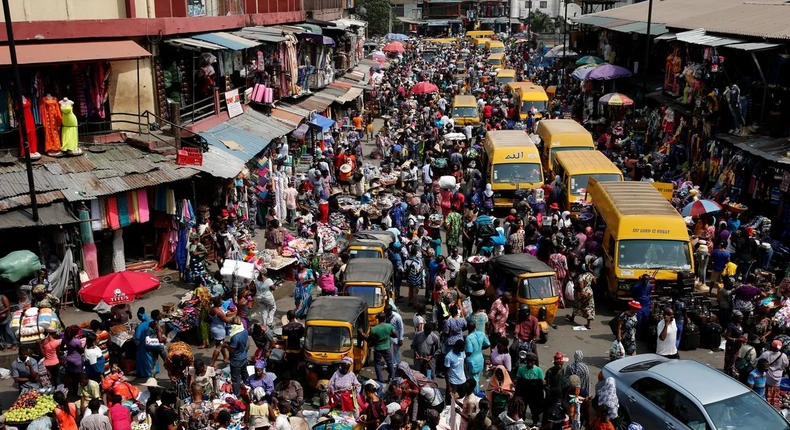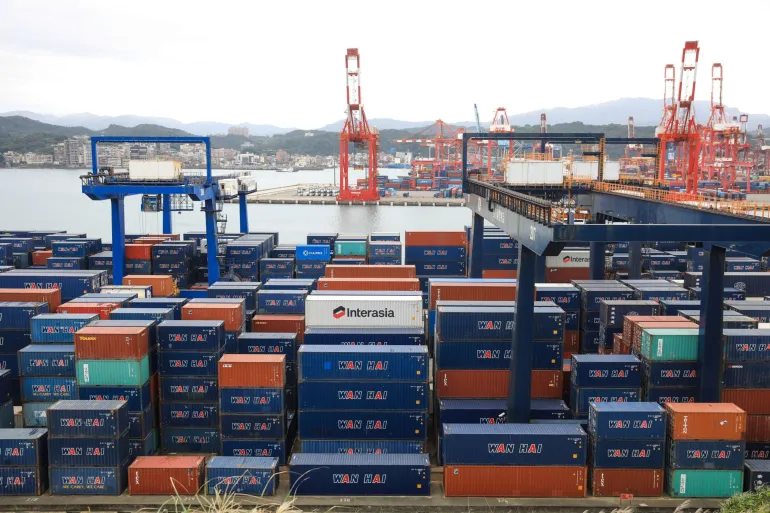Depending on the source, Nigeria has a population of between 216 and 218 million people, and that number is expected to rise.
Nigeria’s population is anticipated to increase by half to over 400 million people between the years 2025 and 2050, according to Statista, one of the top providers of market and consumer data worldwide.
Such a significant increase may have both positive and negative effects. On the one hand, population growth could propel the economy to new heights if it is properly managed. On the other hand, high population density inevitably brings about manageable but aggravating elements like pollution and traffic.
We have a sample size of 62 years to demonstrate that there is reason to believe that an increase in Nigeria’s population would result in an increase in its economic activity.
Although it would be blatant misinformation to downplay Nigeria’s current appalling economic situation, it would also be deceptive to hide the country’s obvious commercial revolution.
Nigeria has been able to produce more and generate larger revenue streams in various sectors thanks to the development of technology.
To provide some context, Nigeria had 95.21 people living there and a GDP of $54.04 in 1990. In 2000, the nation had a population of 122.3 million people and a GDP of 69.45 billion USD. Nigeria currently has 216 million residents and a 407 billion USD GDP.
This information shows Nigeria’s adaptability, at the very least. The nation manages to come up with new ways to serve them whenever there are more people to serve. This is not to downplay the egregious mismanagement of the nation’s wealth and resources as a result, but rather to emphasize the nation’s capacity to advance rather than to stagnate or, worse, decline in the face of difficulty.
Nigeria, which had the highest GDP of any African nation in 2021, continues to be one of the wealthiest nations in the continent. Additionally, it is home to some of the smartest, most talented, and talented individuals in the world.
Here are five advantages a country might encounter if its population doubles, assuming that the country doesn’t turn too hostile:
More output from production: An increase in population would indicate that the nation has a greater demand for production. Thankfully, Nigeria has a wealth of natural resources and, more importantly, human resources. The number of tech-driven solutions in this country has skyrocketed over the last ten years. The production of goods for both domestic and international trade has been accelerated and improved by the integration of technology in agriculture, finance, and oil. This has been made possible by the collaboration of Nigeria’s creative minds and the wealth of its natural resources.
Fix for brain drain: More people would ensure that there are sufficient creative minds to support the nation, even after some may have migrated. Nigeria is currently experiencing a significant brain drain as a result of the economy of the nation. However, there would be more chances to find solutions locally if there were more people. The country would benefit because more creative minds would be encouraged to use their skills here.
Economic diversification: Throughout its history, Nigeria has benefited from diversity. Different people have different areas of specialization. Due to the abundance of business, the arts, engineering, and other fields within one border, this synergy has kept the nation afloat. As people learn from one another and diversify their skill sets, this diversity is becoming more expedient today. With an increase in population, this diversification would benefit the current economy and there would be more people who could simply do more.
Commercialization of other states: People are drawn to commercial pursuits. This explains why Port Harcourt, Lagos, Abuja, Kano, Anambra, and Imo state are states with dense populations. But what occurs when there are too many people in a certain economic hub? There must be more economic hubs established. State governments from other states would be compelled to commercialize their regions so that people would want to live there rather than move to another city and overpopulate it.
Socioeconomic restructuring: The government would need to be changed if there were more people. In this regard, it is more important to note that the ideologies and values of younger generations have evolved rather than simply that more people are demanding better from the government. The Gen Z and Millennial generations are already more informed and enlightened than previous generations, making it difficult for the Nigerian government to address their concerns. As long as this trend persists, modernizing laws and constitutions will be required, and future governments will be held to a higher standard of accountability than their forerunners.









